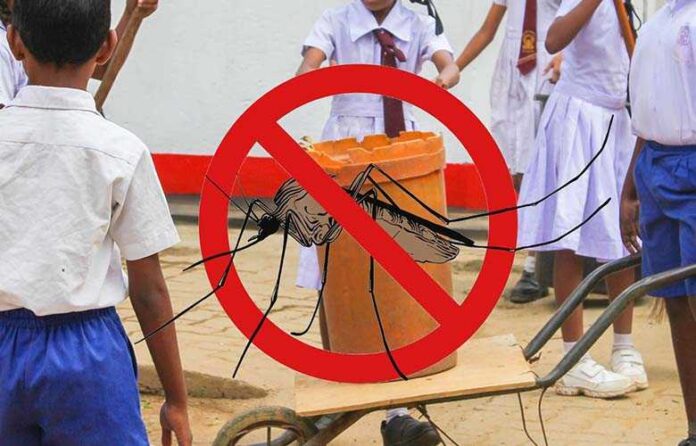July 06, Colombo (LNW): Health authorities have raised concerns after uncovering potential mosquito breeding environments in over 120 schools during an intensified anti-dengue initiative being carried out across Sri Lanka.
The findings emerged as part of a nationwide mosquito control campaign, which has been ongoing over the past week in an effort to curb the spread of dengue fever.
According to the National Dengue Control Unit, targeted inspections were conducted over a three-day period in high-risk Medical Officer of Health (MOH) divisions across eight districts.
A total of 229 schools were visited during this special operation, and of those, 121 were flagged for having conditions conducive to mosquito breeding. Alarmingly, active mosquito larvae were discovered in 29 of the institutions.
Dr Anoja Dheerasinghe, Consultant Community Physician at the Dengue Control Unit, described the situation as highly concerning.
She called for immediate and sustained action from school administrators and local health authorities, emphasising that educational institutions must be particularly vigilant given the vulnerability of children and the high transmission risk in densely populated settings.
The broader campaign has seen nearly 20,000 premises inspected in a single day alone—July 05—with inspectors identifying 5,085 locations as potential breeding sites for dengue-carrying mosquitoes. Larvae were found in 567 of these sites, prompting calls for stronger public cooperation and stricter enforcement of sanitation standards.
Officials have reiterated that mosquito breeding can occur in even the smallest collections of stagnant water, often in overlooked areas such as gutters, plant pots, discarded containers, and school playgrounds.
With the monsoon season intensifying across several parts of the country, the conditions are ripe for mosquito populations to spike if timely preventive action is not taken.
The Dengue Control Unit has urged school staff, parents, and community leaders to treat the issue with urgency and to engage in regular cleaning drives.

